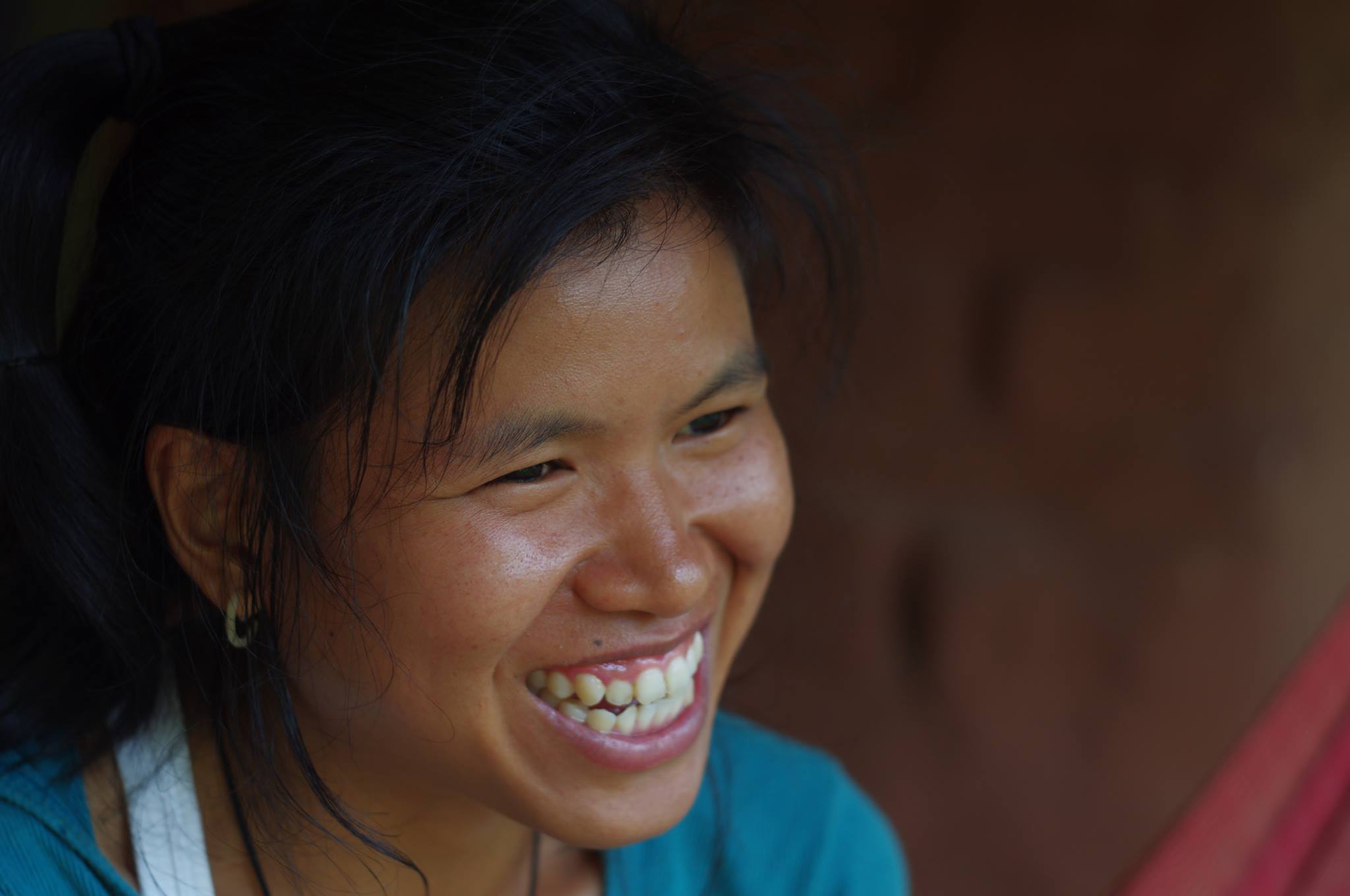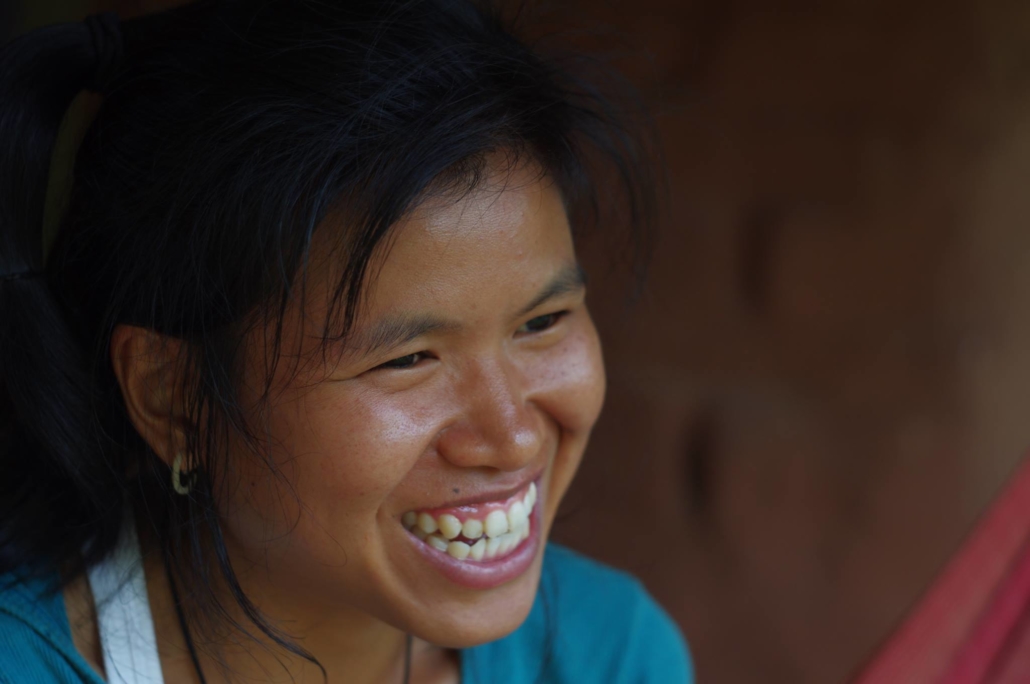Activistas comparten poderosas historias en la reunión climática de Bangkok
BANGKOK, Tailandia – Días antes de la Cumbre del Clima COP25 de las Naciones Unidas, Regeneration International participó en el evento “Las dimensiones internas del cambio climático”, celebrado en la sede de la ONU en Bangkok.
El evento, organizado por la Iniciativa de Paz Global de Mujeres y la asociación budista Dharma Drum Mountain, reunió a jóvenes activistas ambientales de los cinco continentes. Los activistas se unieron bajo un mensaje común: “si queremos revertir la crisis climática actual debemos volver a conectarnos con la naturaleza”.
“Las dimensiones internas del cambio climático” arrancó sin la presencia de los habituales expertos en ciencias y políticas, que generalmente dominan la conversación en las conferencias sobre cambio climático. En cambio, se cedió la palabra a jóvenes activistas que trabajan en diversas cuestiones como la biodiversidad, los derechos indígenas, la igualdad de género, la agricultura regenerativa y la ecología profunda.
“Muchos de estos activistas a menudo trabajan solos y creemos que es importante reunir a estos jóvenes para construir una comunidad global de confianza donde puedan compartir y nutrirse del conocimiento e inspiración de los demás”, dijo Marianne Marstrand de la Iniciativa de Paz Global de Mujeres.
Asistí a la conferencia con mi compañera, Hsu Zin Maung, para compartir el trabajo de Regeneration International en el desarrollo de proyectos agrícolas en Myanmar y en la promoción del desarrollo orgánico regenerativo en todo el mundo.
Nos reunimos con personas de diferentes religiones, culturas y realidades, activistas que trabajan en áreas del mundo donde las ideologías sobre el medio ambiente y la justicia social son a menudo conceptos nuevos y, a veces, incomprendidos.
Todas estas personas compartieron historias poderosas sobre el camino que los llevó a donde están ahora. Estos son solo algunos de los jóvenes activistas que nos inspiraron ese día:
Riddhi Shah (India)
Shah tiene 28 años y trabaja en áreas rurales del sur de la India que sufren una severa escasez de agua. Lanzó un programa en toda una región para construir alcantarillas y canales para aumentar la filtración de agua subterránea. Después de cuatro años, su trabajo consiguió reabastecer un lago seco que ahora provee a una comunidad local durante todo el año.

Riddhi Shah, Activist Education in India
“Para abordar la crisis climática, solo tenemos que ver cómo, de manera tan hermosa, la naturaleza facilita y encausa el proceso”, dijo Shah.
Pero Shah no se detiene ahí. Su pasión por la educación y por vincular la justicia social y ambiental la ha llevado a convertirse en una de las mejores consultoras filantrópicas de la India, catalizando proyectos para la implementación de proyectos regenerativos en toda la India.
Ramphai Noikaew (Tailandia)
Noikaew vive en una comunidad en su granja orgánica Pun Pun, ubicada en el norte de Tailandia, donde le gusta compartir sus conocimientos sobre la conservación de semillas y las medicinas herbales indígenas de la región del Mekong.

Ella y su esposo educan a las personas de forma voluntaria sobre la agricultura orgánica, la ecología profunda, cómo mejorar las condiciones de vida local y el desarrollo comunitario. Recientemente lanzó un mercado de agricultores orgánicos en Bangkok, donde la comunidad agrícola Pun Pun está ampliando su conocimiento.
“El cambio climático es una realidad y tenemos que cambiar con él. Estamos incrementando la diversidad para asegurar que, sea cual sea el clima, tenemos otras alternativas cuando se pierde la cosecha de un cultivo “, dijo Noikaew. “Y enseñamos a las personas a conservar semillas para que sepan cómo usarlas, cultivarlas y compartirlas”.
Ying Liang (China)
Ying Lian dirige el Huerto de Aprendizaje Schumi y Granja Orgánica en Zhongshan, una aldea tradicional al pie de la montaña Wugui, en el sur de China. El Huerto de Aprendizaje Schumi es un centro de aprendizaje transformador para adultos basado en tres pilares de educación: la vida comunitaria, la conexión con uno mismo, los demás y la naturaleza, y el sustento correcto.
El centro también es una incubadora para proyectos de medios de vida comunitarios, como un mercado de fin de semana para agricultores para revitalizar la economía local.
“Me inspiran especialmente los ecosistemas forestales, donde la vida florece y todos los elementos se nutren entre sí, donde la vida y la muerte son procesos circulares”, dijo Liang. “Estoy trabajando para recrear este tipo de sistema y manifestarlo en la sociedad humana para ayudar a mejorar la resiliencia socio-ecológica”.
Gao Heran (China)
Heran es la fundadora de la escuela de naturaleza Citan Village en la provincia de Hainan, China. Esta iniciativa tiene como objetivo educar a niños de aldeas y familias urbanas, principalmente de Pekín, sobre el medio ambiente y la naturaleza mediante programas de educación ambiental y juegos.
El enfoque del plan de estudios es la administración ambiental, la biodiversidad local, la conservación de la naturaleza, la implementación de prácticas de permacultura y la creación de equipos de trabajo en las aldeas.
La escuela también organiza viajes de fin de semana a las aldeas para familias que viven en la ciudad con el objetivo de alentar intercambios y asociaciones educativas ambientales rural-urbanos.
“Somos naturaleza, pero en la ciudad a menudo vivimos como animales enjaulados”, dijo Heran. “Mi trabajo es llevar a las familias de la ciudad al campo, especialmente a las generaciones más jóvenes”.
Crystal Foreman (Estados Unidos)
Foreman es diseñadora de permacultura certificada y jardinera certificada de la ciudad de Baltimore. Trabaja para mejorar la justicia y la soberanía alimentarias y el acceso a alimentos orgánicos.

Crystal Foreman, a certified permaculture designer and certified Baltimore City Gardener
Foreman enseña a las personas cómo cocinar de forma saludable y cómo usar alimentos con los que quizás no estén familiarizados. También trabaja de la mano con productores orgánicos locales y enseña a las personas cómo buscar alimento tanto en áreas urbanas como rurales.
Foreman reconoce que al elegir de forma consciente lo que ponemos en nuestro plato, tenemos el poder de hacer cambios ambientales y sociales.
“La desigualdad alimentaria, la mala calidad de los alimentos y el trabajo inhumano, pueden atribuirse a la agricultura convencional, causante de daños ambientales extremos”, dijo Foreman. “Quiero enseñar a las personas cómo ser autosuficientes con su elección de alimentos. Enseñar a las personas cómo vivir con la tierra y cómo la tierra puede nutrirnos es muy importante para mi misión ”.
Oliver Gardiner es el productor y coordinador de medios de Regeneration International para Asia y Europa. (Especial agradecimiento a la Iniciativa de Paz Global de Mujeres). Para mantenerse al día con las noticias de Regeneration International, suscríbase a nuestro boletín.


